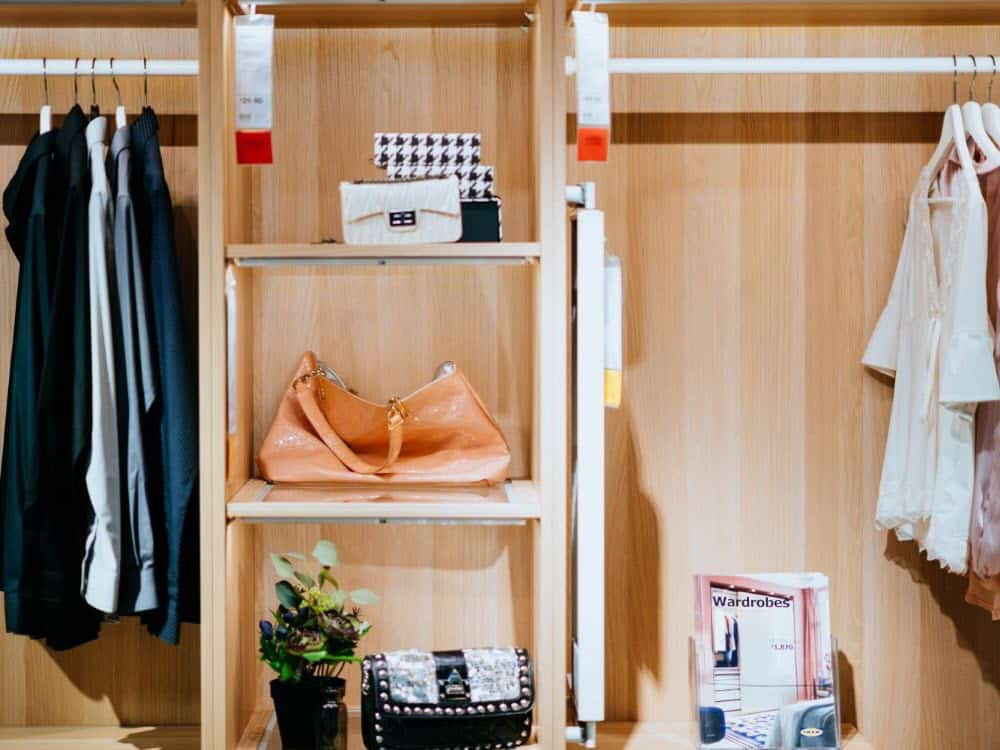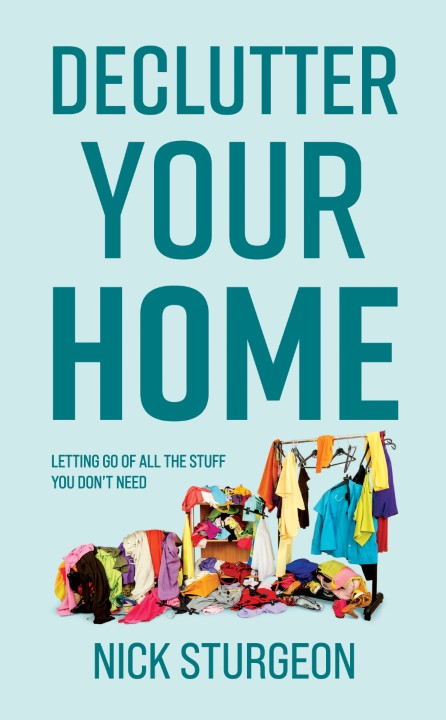If you have become a clutter junky over time, then this journey is going to require you to be brave as we move along a path towards a home with less burden and more joy, to a place where you know what you have and where it is. If you simply have more stuff than you need to live a happy and fulfilling life, and cupboards and wardrobes bulging with stuff you neither use nor wear, then you will enjoy the practical satisfaction and emotional relief that comes with the letting go of the unwanted, the unneeded and the undesirable ’stuff’ that is clogging the arteries of your living space.
Imagine the pleasure of coming home to a place where everything has its place and you know precisely where that place is. How much time do you lose in the course of just a week looking for things that are no longer where you imagined them to be and in struggling to consider how you might find them? Imagine also what might happen if, within your accumulated record of your life history, you find and reconnect with items that are in good order and have a value to someone else, that can be sold via online sites and where you can receive the financial value of such things with relative ease.
Always a book collector or addict, I have struggled to leave a bookshop without buying something that looked great, but which I might not get around to reading. So the day I came home from bookshop, having browsed a title dealing with creating a tidy home, and without a new book in my hands was a real turning point for me.
I came through the front door and said “We have to do something. I realise the level of my hoarding and am really embarrassed about it.” I was genuinely distressed at how out of control my book addiction had become and had fixated on this thought since driving back from the book store. My partner is kind and caring and understood. She simply said “I’ve been waiting for you to realise this, my love”, and gave me the biggest and most understanding hug. In that simple moment was born the start of our plan to declutter and live a lighter life, one without the burden of the clutter and the chaos it brings.
What is it that you collect, gather around you as if it is going out of fashion or as if it will never be available again? Is there a theme or trend to what you bring home and hoard? By identifying and understanding these patterns of hoarding and gathering clutter, you are half way to recovery. Knowing what is getting in your way is what you have to discover for yourself in order to become free of the clutter bug.
Be kind to yourself as you work through the ideas behind your gathering junk, building a collection, creating a bunch of ‘treasure’ - at least in your eyes - and make some steps to break the addiction.
You can do this, but just take it one day at a time.
Why do we gather clutter?
The reasons are many and often complicated and the exploration of these is going to open up that proverbial ‘can of worms’ as we work through these together. The power of emotions has the greatest hold on us as we delve into this topic and some of the reasons will astound you. At the very least you will be surprised by some of the learning you make in the process. Ask yourself :
“Why do I have Grandpa Tom’s hand built coffee table in my life?”
“Does the clock on the wall that was on a mantelpiece in my long-dead Aunty’s house need to have a place in my own living room, some twenty years after she passed?”
“Does the team football photograph that showed my Dad as a young man about to leave school seventy years ago need to be on the wall in my hallway?”
“Just because I was given a hand painted teapot and matching cups and saucers by my best man and his wife when we first married twenty five years ago - and divorced after twelve years - should I still have this on the shelf in my kitchen? Especially when I have not used it in the two years since we took it out of the box it was found in?”
These are random questions that I use from my own example of clutter and accumulated items in the challenge that we set ourselves at home. I am sure you can easily find your own relevant examples of things around you.
Here are a couple of simple questions for you today, intended purely to help you find your place in all of this.
Do you consider that you have all your possessions under control?
When you see the clutter in your house, whether on display in the common areas and daily used rooms of your home, or stuffed awkwardly into the lesser observed areas of cupboards, attics, basements or boxes in the garage, how does that make you feel?
Enough said! Your clutter is personal to you and your lifestyle as well as to your attitude and approach to life. Millions of other people live with everything they own under one roof and they experience no guilt or upset. But this exploration of letting go is not about them. I have confessed my own situation and how I felt that so many material things were draining my energy and time. The things we bring into our home space should be there because they make tasks easier or to bring us happiness. Where our possessions become so many that they are more than we can manage and they start to distract us from living the life we should be enjoying, this is where the trouble begins and the stress begins to wear us down. We work longer hours and spend more of our disposable income just to keep the possessions under control by such things as storage, insurance and taking on bigger and more costly spaces to live in.
Quite naturally, we need to place much of our focus on our home, on our living space and the things within it. But a full approach to letting go requires that we don’t just limit ourselves only to mess and chaos, to clutter and junk as they appear in your physical world. We will also explore the damage that comes from being connected with toxic people, the distraction of digital clutter and the overwhelm that can come from addiction to gathering more around you than you need.
To answer the question of “Why do we gather clutter?” we do this because we are human. We do it because we feel we need to collect things around us so that we can make statements such as these :
“I am safe now”.
“They are not making this quality any more, so let’s get one now”.
“I can provide for my family”.
“I deserve to have this because I have gone through so much”.
“Do you know how much I had to work this month?”
“This was a bargain, so I had to get it”.
“We’ve been struggling recently so I figured we deserved this”.
Being human gives us a sense that we have to carve out our own identity in a world that is so often homogenised, identical, similar brand - different perspective, must-have, latest trend, special item, but really very much the same. We think that by surrounding ourselves with the things which reflect who we believe ourselves to be in the world, we will then create a space which feels unique to us. And when you first do this, starting to accumulate the things around you which make you feel good, it does seem like you are achieving the goal of originality. But at what cost, or better said, at what price?
What price have you paid to fill your home with the things that you have purchased in order to bring home and use to say “This coat is me” or “These books and this desk are me” or “This car is me”. Some of that is your own voice and heart talking. However, there will be a proportion of ‘stuff’ in your dwelling space which has got in there, easily or by pushing it’s way in, because of advertising, because of the cultural influence of your neighbourhood or peer group, of social media and what is or is not ‘on-trend’ this week. Letting go of this stuff will emotionally and physically open up space in your home. While it can seem like a push to make the decision to look at each thing we have and bag or box it for discarding or donating, the value of doing so is beyond measure.
As we go on this declutter journey together, there will be opportunities to work through various exercises and activities. All voluntary of course. One very probable realisation is likely to be that your early dreams and aspirations for what home should look like, but also feel like, will make themselves very clear to you. Some of these will have been completely forgotten over previous years, others will whisper gently and kindly to you and ask to be let back into your living space to reflect all those good aspects of you, your character and your values. Welcome them when you see them, as you surely will when you reduce the distraction that has been overwhelming your personal space.

